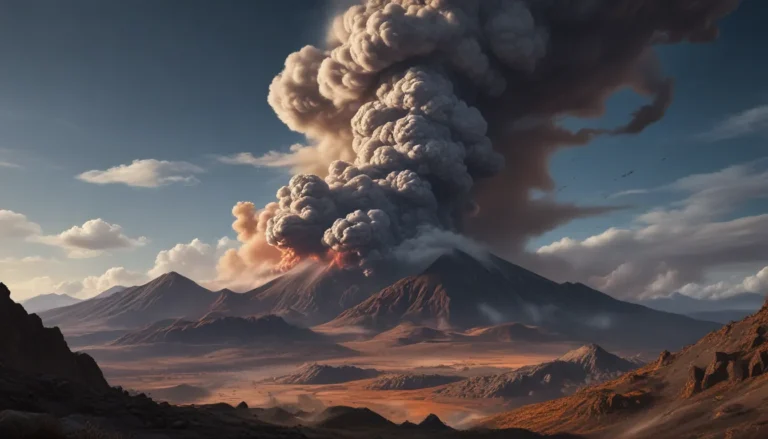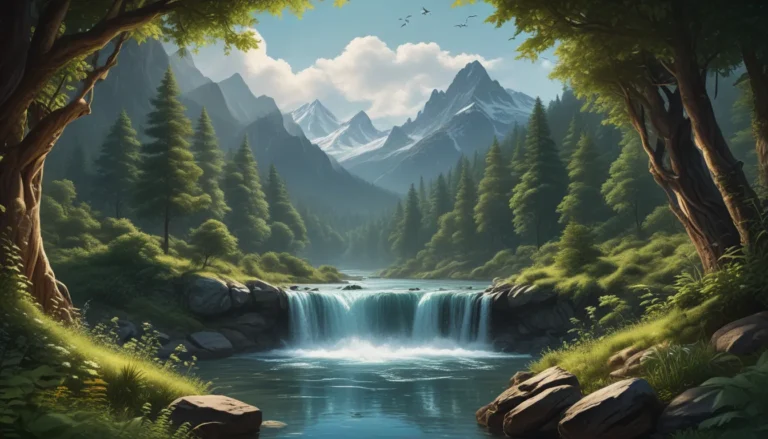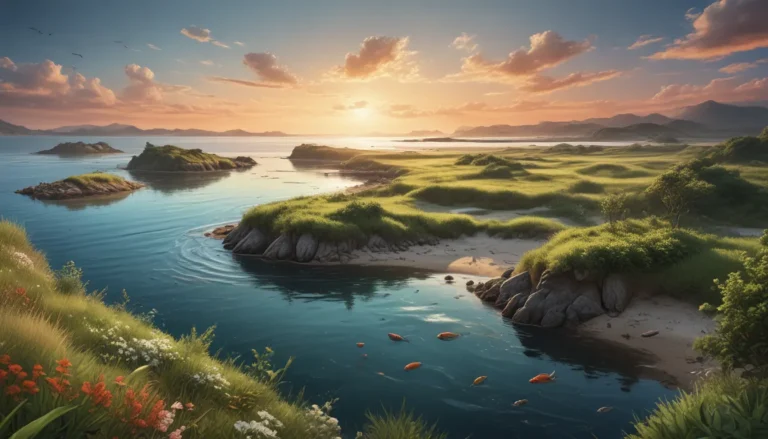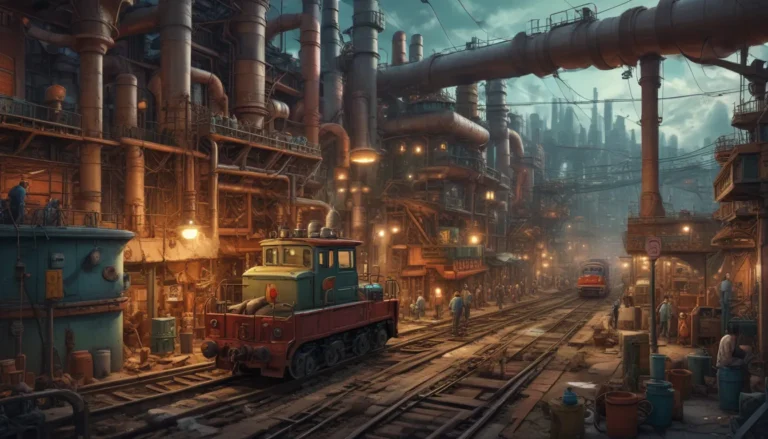A Note About Images: The images used in our articles are for illustration purposes only and may not exactly match the content. They are meant to engage readers, but the text should be relied upon for accurate information.
Welcome to the world of ecological reserves, where nature thrives, biodiversity flourishes, and conservation efforts take center stage. These unique and valuable areas are dedicated to safeguarding our planet’s natural ecosystems, preserving habitats, and protecting a vast array of plant and animal species. While most of us are familiar with the concept of protected areas, there are some extraordinary facts about ecological reserves that are truly fascinating and worth diving into.
Unveiling the Beauty and Importance of Ecological Reserves
Ecological reserves are designated as protected areas of land and water, specifically set aside to conserve natural ecosystems, habitats, and species. They play a critical role in maintaining biodiversity, ecological balance, and the overall health of the environment. These reserves serve as living laboratories for scientific research, offering valuable insights into the intricate workings of various ecosystems and providing opportunities to study and understand ecological processes.
Unlocking the Mysteries: 11 Extraordinary Facts About Ecological Reserves
-
Global Presence: There are thousands of ecological reserves scattered across the globe, each with its own unique flora, fauna, and environmental conditions. From the lush rainforests of Costa Rica to the vast plains of Africa, these reserves offer a glimpse into the earth’s incredible biodiversity.
-
Scientific Wonderlands: Ecological reserves serve as invaluable scientific research sites, where scientists and researchers study species populations, monitor ecological processes, and develop conservation strategies. These reserves are essential for advancing our understanding of ecosystems and promoting sustainable practices.
-
Climate Warriors: Ecological reserves contribute to climate change mitigation by acting as carbon sinks, absorbing and storing significant amounts of carbon dioxide from the atmosphere. This crucial role helps combat climate change and reduce greenhouse gas emissions.
-
Guidelines and Regulations: Each ecological reserve has its own set of rules and regulations, managed by government or non-governmental organizations. These guidelines aim to protect the reserve’s unique biodiversity and prevent human interference or damage.
-
Restricted Access: Visitor access to ecological reserves is often limited or regulated to minimize human impact, protect vulnerable species, and preserve the ecological integrity of the reserve. This helps maintain the pristine condition of these natural habitats.
-
Educational Opportunities: Many ecological reserves offer educational programs and guided tours to raise awareness about conservation and sustainable practices. Eco-tourism in these areas provides economic benefits to local communities while fostering a deeper appreciation for nature.
-
Haven for Endangered Species: Ecological reserves often serve as safe havens for endangered and threatened species, safeguarding critical habitats and providing refuge for species on the brink of extinction. These reserves play a crucial role in protecting vulnerable wildlife.
-
Preservation of Water Resources: Located near rivers, lakes, or coastal areas, many ecological reserves contribute to the preservation of water quality and the health of aquatic ecosystems. By protecting water sources, these reserves indirectly benefit surrounding communities and wildlife.
-
Recreational Opportunities: While conservation is the primary focus of ecological reserves, they also offer recreational activities such as hiking, birdwatching, and nature photography. These activities allow visitors to connect with nature while respecting the rules of the reserve.
-
Essential for Future Generations: By preserving natural habitats, protecting species, and mitigating climate change, ecological reserves ensure a better future for generations to come. These reserves remind us of the importance of biodiversity and the need to conserve our natural world.
Embracing the Future: The Vital Role of Ecological Reserves
Ecological reserves are essential for the preservation and protection of our planet’s natural heritage. From safeguarding endangered species to promoting scientific research and education, these reserves play a vital role in maintaining the health and sustainability of our planet. As we face increasing environmental challenges, it is crucial to recognize and support the efforts made by ecological reserves to preserve our natural world for future generations.
Frequently Asked Questions
-
What is an ecological reserve?
An ecological reserve is a designated area of land or water that is protected and managed to preserve its natural integrity and biodiversity. -
Why are ecological reserves important?
Ecological reserves are important because they safeguard unique ecosystems, protect endangered species, support scientific research, and contribute to the overall health of our planet’s ecosystems. -
How are ecological reserves established?
Ecological reserves can be established through legislation and government designation, often involving collaboration between conservation organizations, government agencies, and local communities. -
Can I visit ecological reserves?
In some cases, ecological reserves may be open to the public for educational and recreational purposes, while others may have limited access to protect sensitive habitats. It’s best to check with local authorities for specific guidelines. -
Are ecological reserves only found on land?
No, ecological reserves can also be established in marine environments, protecting coastal areas, coral reefs, and marine habitats. -
How do ecological reserves contribute to conservation efforts?
By providing a protected space for wildlife and ecosystems to flourish, ecological reserves preserve biodiversity and help mitigate habitat loss, pollution, and climate change. -
Can ecological reserves be accessed for research purposes?
Yes, ecological reserves often offer opportunities for scientific research and monitoring, allowing researchers to study ecosystems and gather vital data for conservation purposes. -
Who manages ecological reserves?
Ecological reserves are typically managed by government agencies, conservation organizations, and local communities, working together to protect these valuable natural areas. -
Do ecological reserves have economic benefits?
Yes, ecological reserves can bring economic benefits through ecotourism, job creation, and sustainable resource use. They also provide ecosystem services important for human well-being. -
How can I support ecological reserves?
You can support ecological reserves by raising awareness, volunteering with conservation organizations, advocating for their protection, and adopting sustainable behaviors to reduce your environmental impact.
Conclusion: Preserving Nature’s Wonders for Tomorrow
Ecological reserves are not just protected areas; they are sanctuaries for biodiversity, beacons of scientific discovery, and gateways to a sustainable future. By recognizing their importance, supporting their conservation efforts, and embracing their educational opportunities, we can ensure that these extraordinary places continue to thrive and inspire generations to come.
Whether you’re a nature enthusiast, a scientist, or simply someone who cares about the environment, ecological reserves offer a glimpse into a world where nature reigns supreme and conservation is key. Let’s join hands in preserving these invaluable treasures for the benefit of our planet and all its inhabitants. Together, we can make a difference and uphold the legacy of ecological reserves for generations to come.






